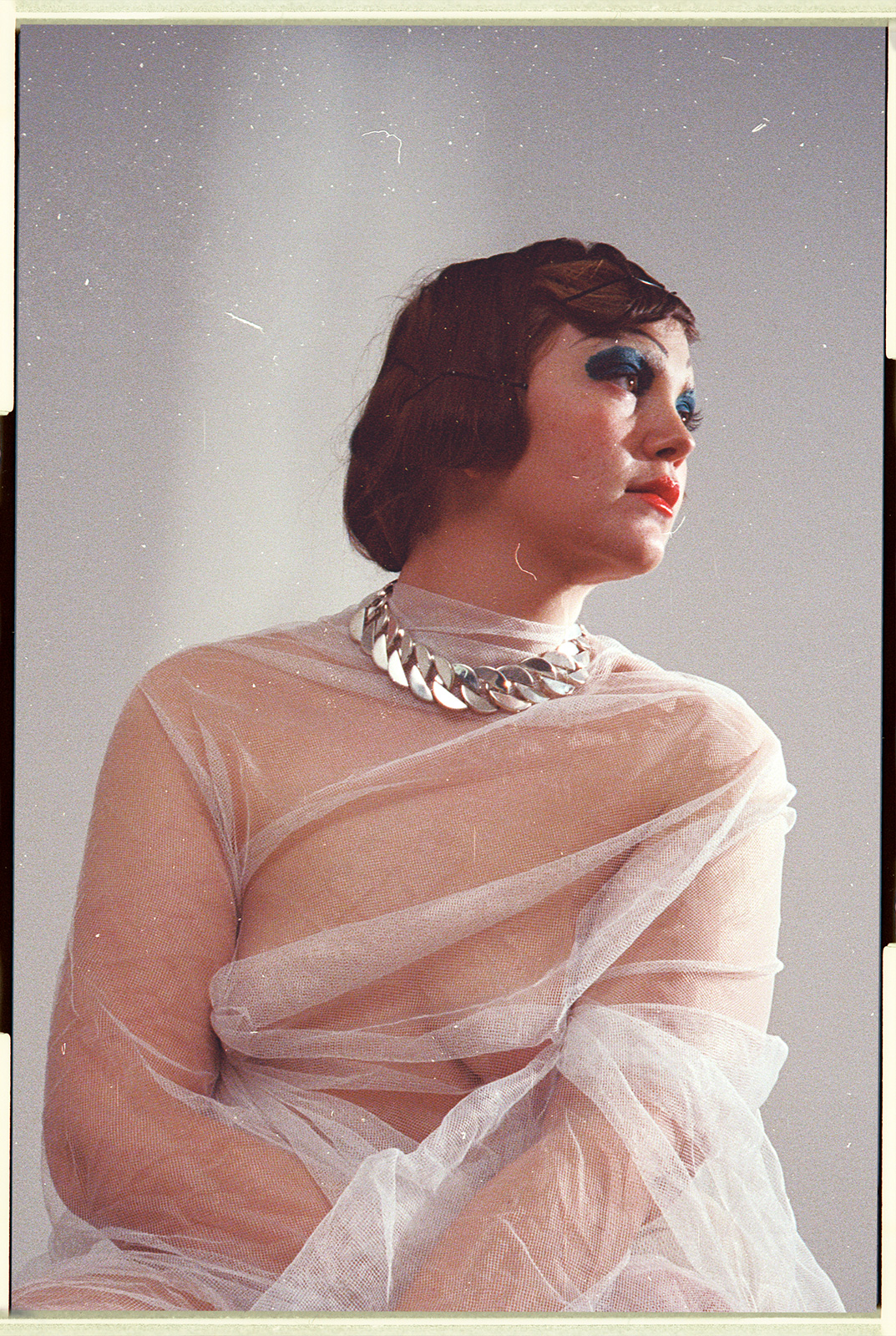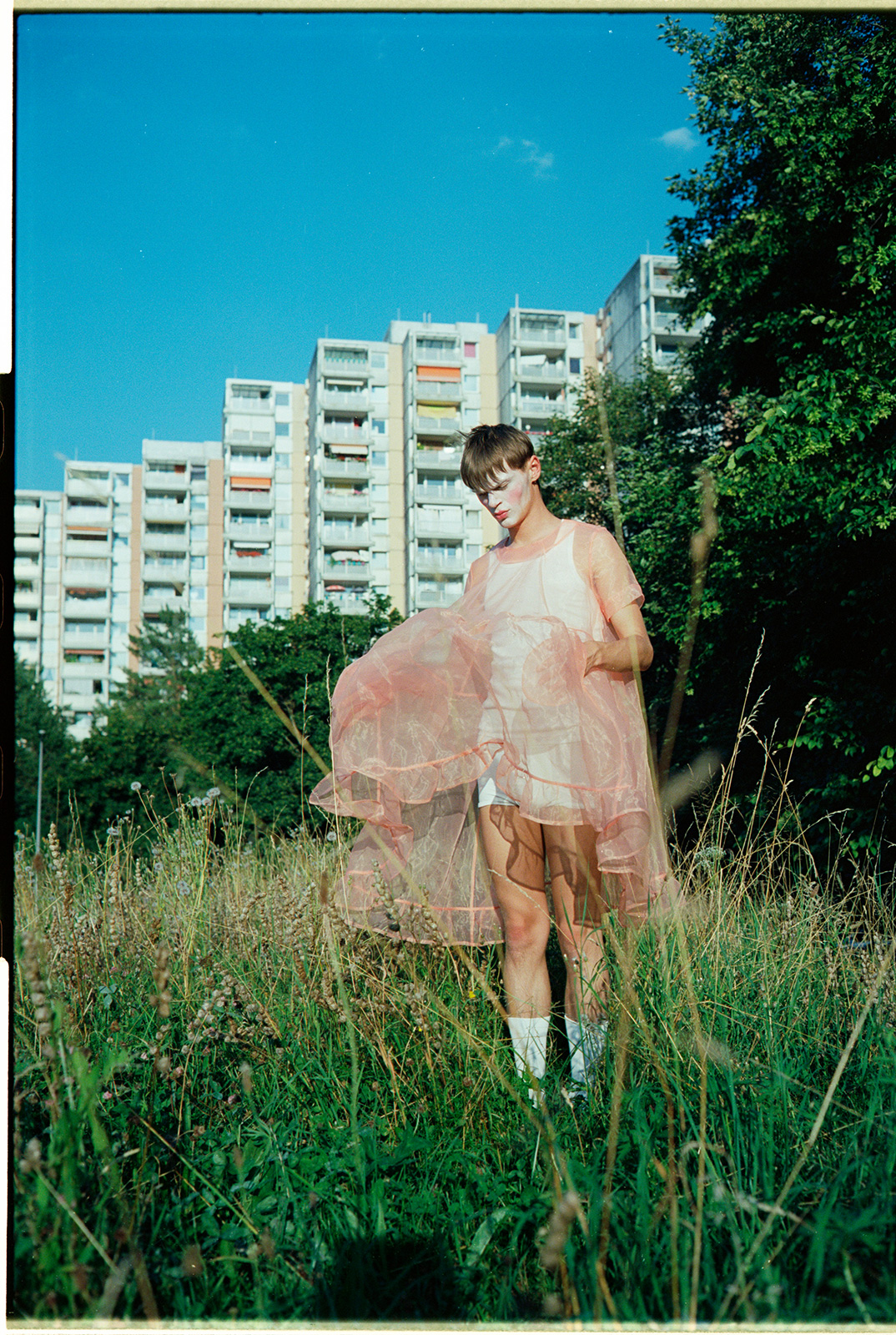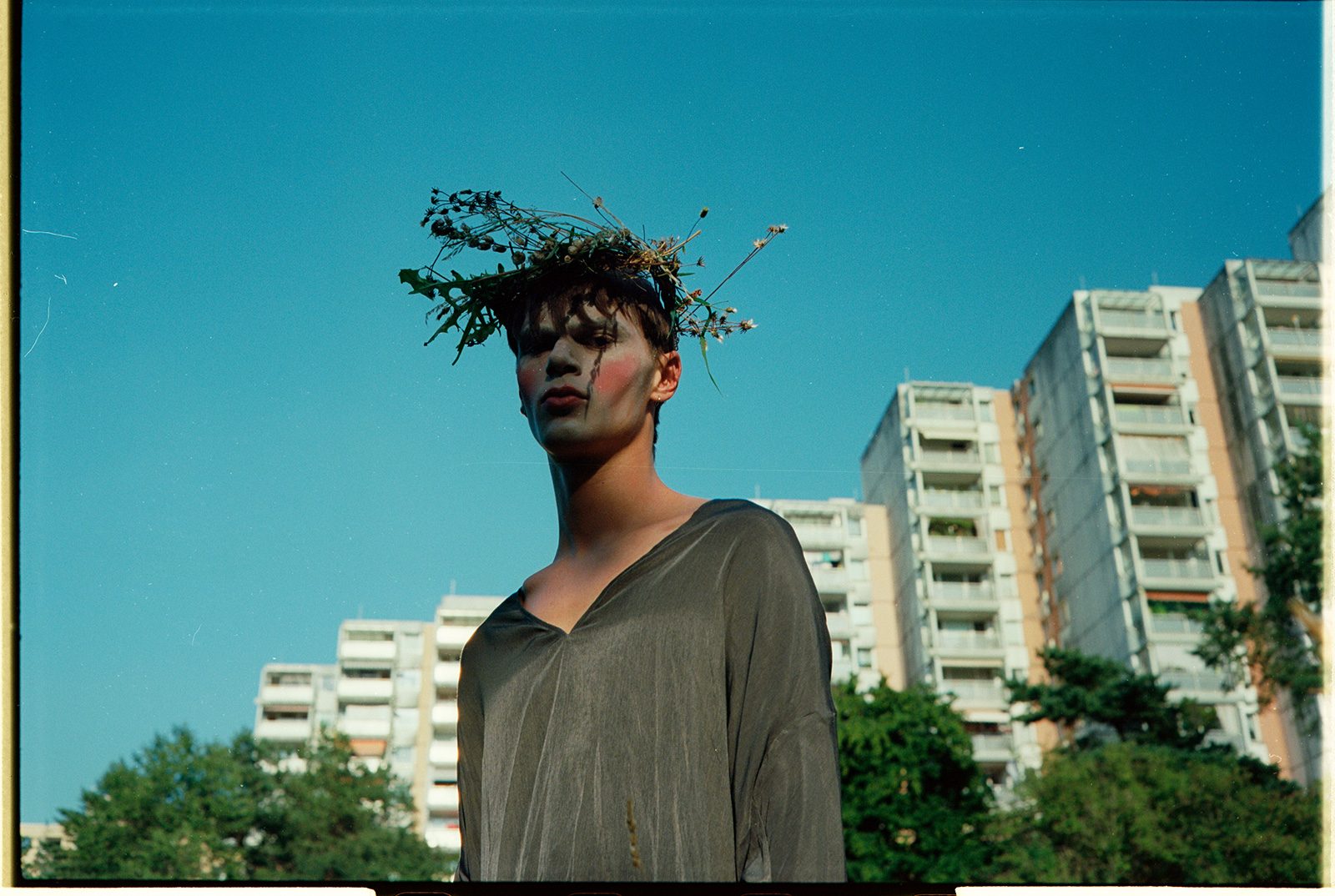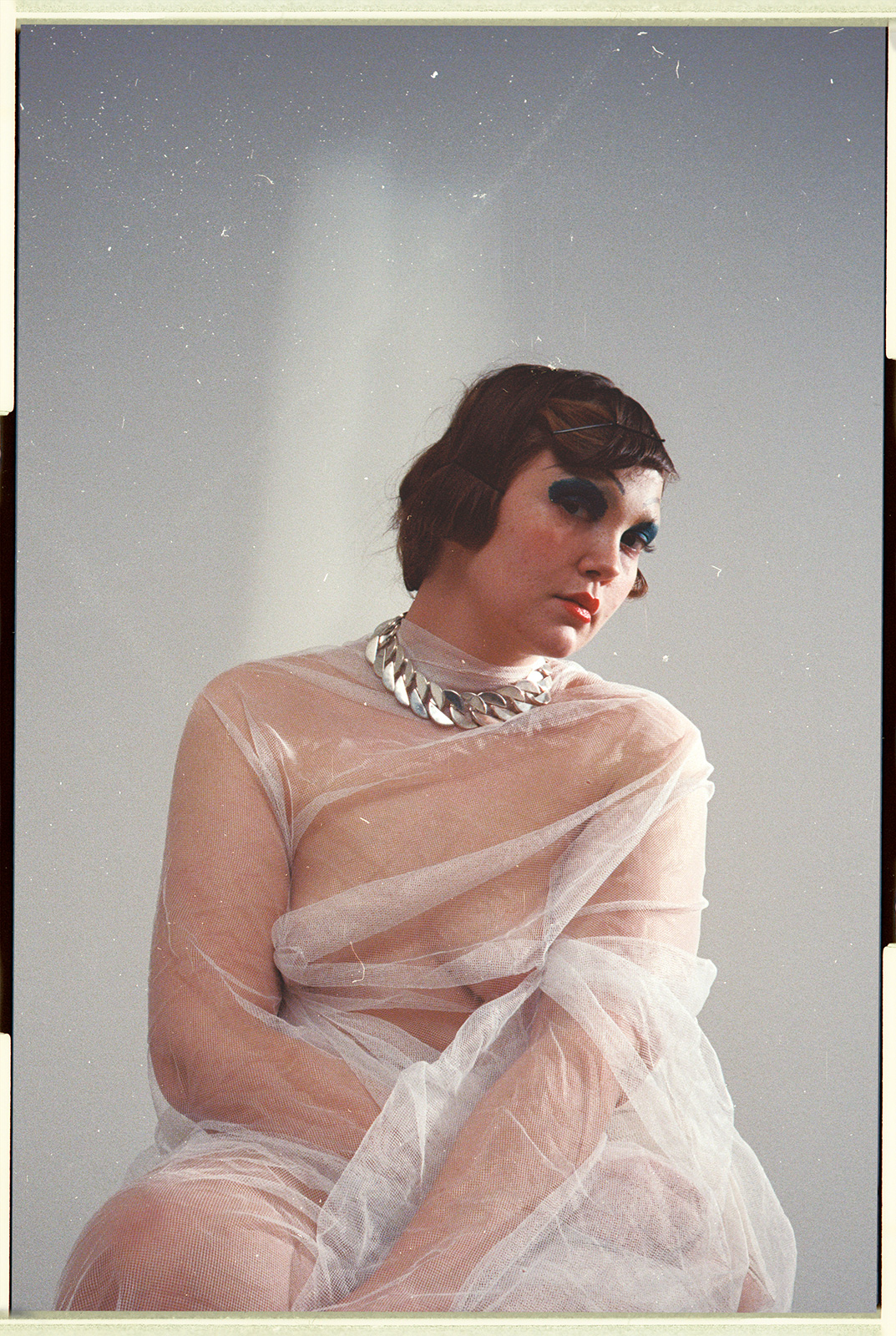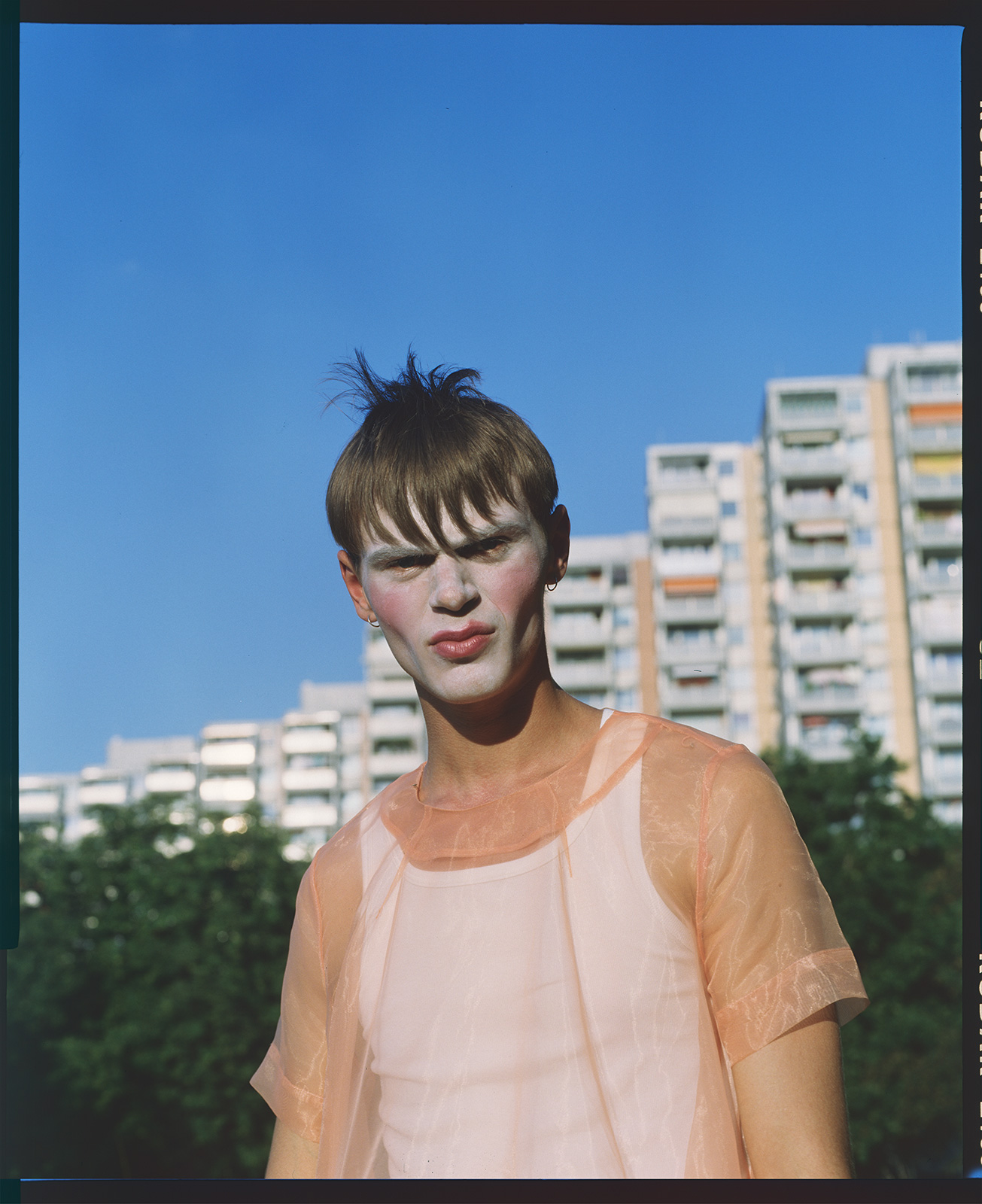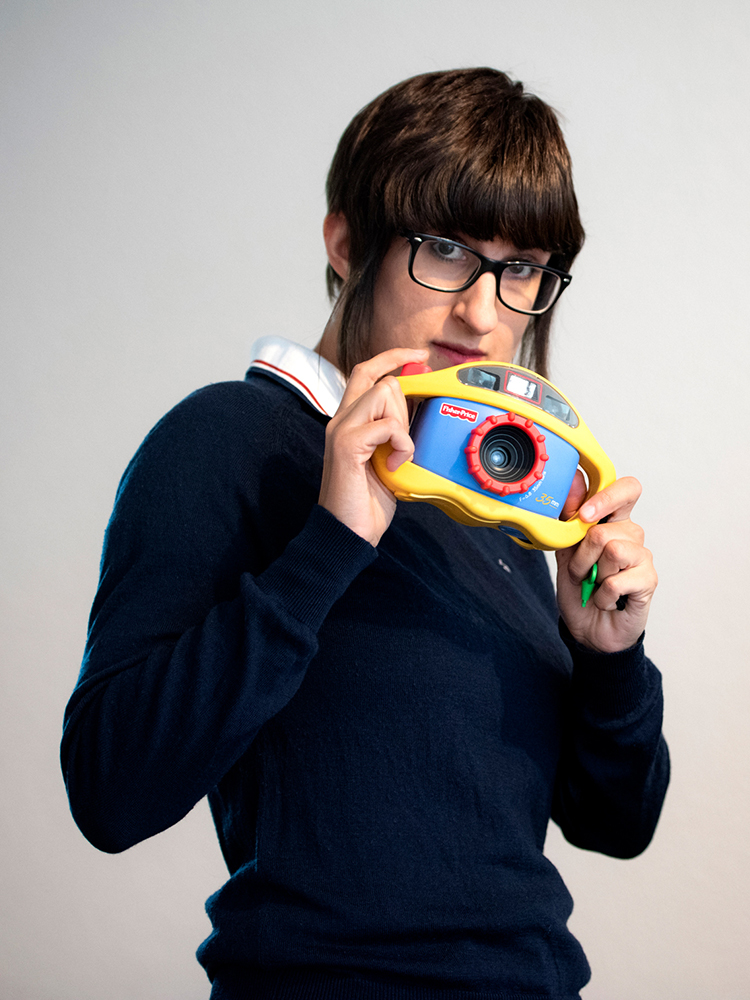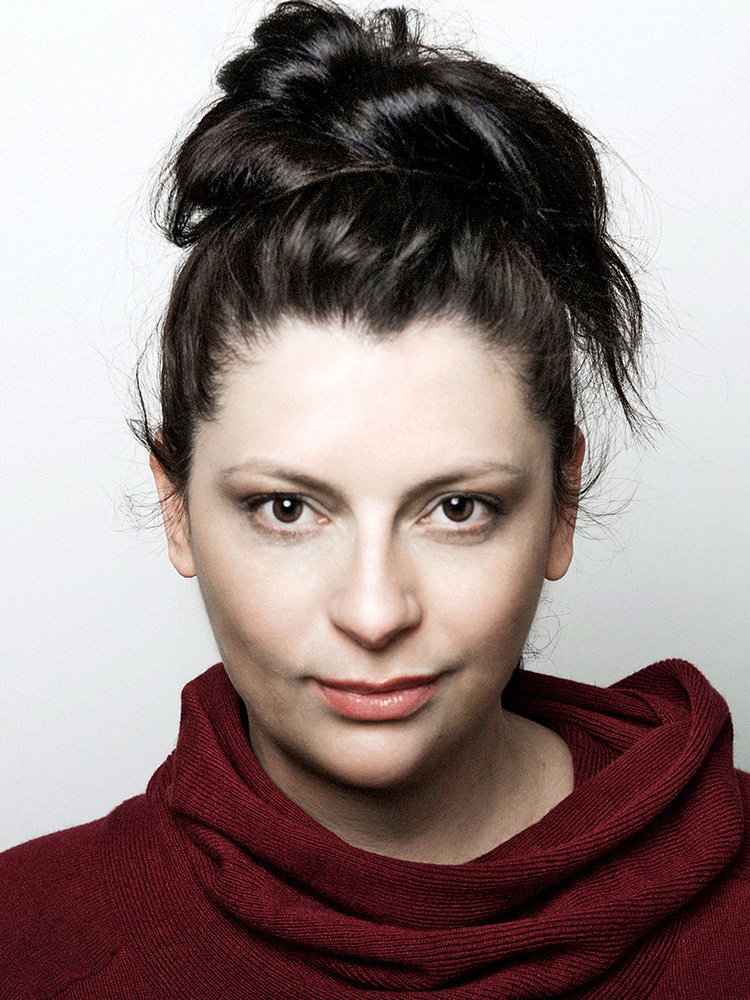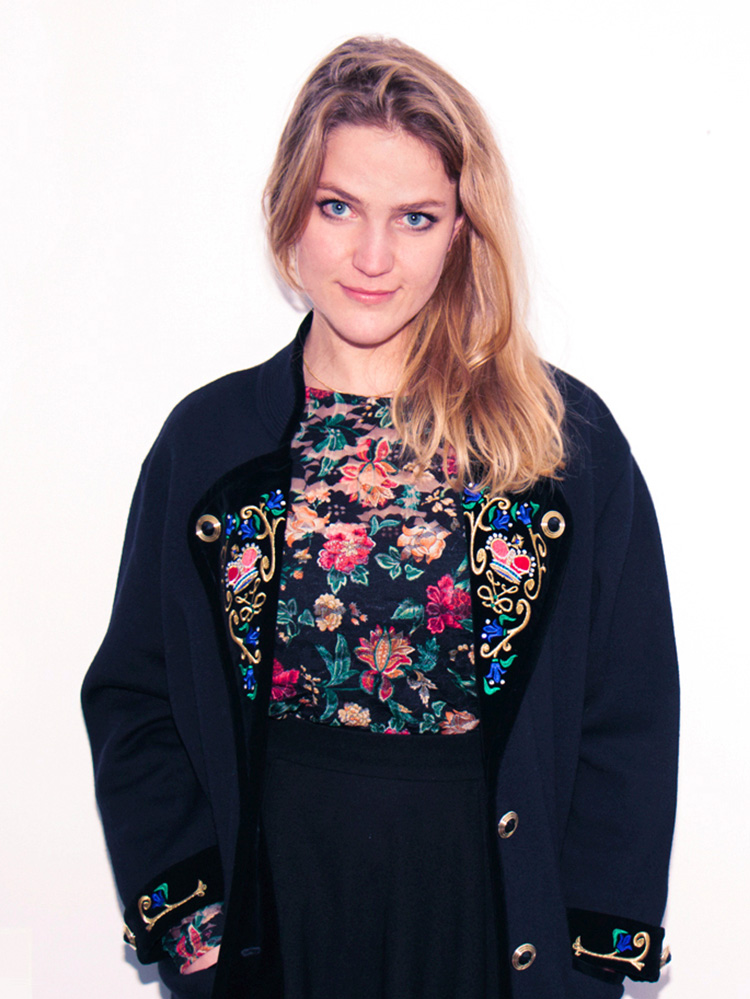
In conversation with
Anna Pentzlin
Munich, Germany
Hi Anna, please introduce yourself.
I am a freelance photographer and graphic designer working in Munich. In 2015 I started to work with analog photography. I taught myself how to take pictures.
What does analog photography mean to you? What excites / fascinates you about it?
I’m excited by the slow pace. The process is in the foreground and the result is at the end of a path. I also like the aesthetics.
In your opinion, what are the advantages and disadvantages of analogue photography?
The advantages are that you really learn to take pictures, get to know photography as a craft. I also look much more closely because I take fewer pictures. On the technical side, it’s the color gamut and tonal range that can be achieved with fairly inexpensive equipment that leaves the digital image far behind, unless you have technology costing the equivalent of a small car.
The same is true for image size. The sharpness achieved is a close second to the digital image. But I think image quality and image aesthetics are not related to sharpness imaging.
Do you concentrate on a certain topic in your work?
My focus is already on the image result. That’s what I’m working towards. A successful image creates an emotional sensation in my eyes. Then, as a second step, a content is added. The content, in turn, is constantly changing, depending on the phase of life I’m in, the artists I’m working with, and the theoretical literature I’m dealing with.
At the moment, I am reading into the discourse of photography theory from the 20th century to the present. This has once again shaken up my understanding of photography and the photographic image.
Are there (analogue) photographers who have influenced your aesthetic and approach?
That changes all the time. At the moment, it’s women theorists who influence and inspire me and show me new ways of thinking about and using the photographic medium. Susan Sontag, of course, but Lucy Soutter and Rosalind Krauss.
Do you have certain cameras and films that you prefer to work with?
I work a lot with the Kodak Portra. It’s very forgiving, up to four thirds of a stop underexposure or overexposure. The Ektachrome, on the other hand, I particularly like because it’s just not forgiving. You have to meter the light to the point and work cleanly.
Speaking of films: What does your workflow look like?
Depending on how quickly a film has to be ready, I develop it myself or I give the images to Fotoparadies/DM for development. C41 and E6 are standardized chemical processes, and in my experience a large laboratory is less prone to errors than I am at the sous-vide cooker.
I do the digitizing myself on my scanner. I have a pretty good one, the Reflecta MF 5000, which can also do medium format. Or I enlarge my pictures. I have just started with that. You only need very little equipment and it’s a lot of fun. A great YouTuber on the subject is Ribsy. Highly recommended!
What advice would you have for other photographers who are reading this interview?
Keep at it. In the beginning, I was often disappointed with my pictures and I also lost some films during development. But for me it was a great feeling to notice how my pictures are getting better and better. Well and: please no chauvinist pictures of (half-)naked women in lascivious poses. These pictorial male sex fantasies are just annoying. And there are so many other exciting motifs in this world.
If you publish your work on Instagram: curse or blessing?
At the moment rather a curse. I’ve become a mom and simply don’t have as much time. I feel pressured by the structure and algorithms of Instagram to keep posting, especially all the time. But on the other hand, Instagram is a great tool for me to connect. I’ve met great people through Instagram and implemented wonderful work.
Which 3 photo books can you recommend / should you definitely own?
No photo books, but books/writings about photography/art.
Susan Sontag – “Against Interpretation”
Wonderfully written, not presuppositional and understandable.
Roland Barthes – “Camera lucida”
A theoretical writing, but also very literary written. Just great to read.
Reclam – “Texte zur Theorie der Fotografie”
Perfect for getting a first glimpse and feel for photo theoretical discourse in the 20th century.
Thank you so much for your time!
Favorites
Minolta CLE
Kodak Portra, Ektachrome
Color
